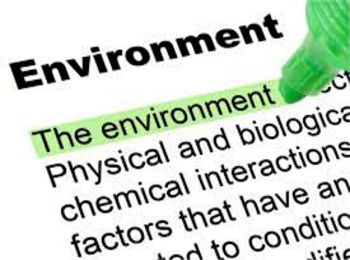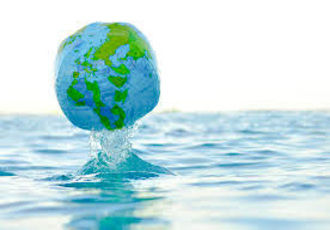The planet is changing at a rapid level. Many changes are taking places that are not always good for everyone on land or even those in water. You may not be able to see all these changes by simply looking outside your window, numerous things are happening on a global scale that has a big impact on virtually everyone on the planet. Climate change, for instance, is no longer just a threat but a reality we are all facing every single day. The ocean is rising and so is the planet heating up. They may all seem irrelevant to the ordinary man but they play a big role to how the world works as a whole. And when you hear someone saying we are now in the midst of an environmental crisis, it can’t be any truer.
 Everything we do, big or small, has an impact on the world. If we want to protect the planet and make sure we don’t suffer that often in the hands of Mother Nature, let us also reduce our carbon footprint and we should practice more environment-friendly ways in everything we do. Even the little things we do count a lot in saving the world and somehow making it a better place for each and every one of us. Nobody will help us except ourselves. In the end, it is us who will also suffer if we don’t step up and do something about all the environmental issues we are facing because after all, we only have one planet to live in. Let’s stop making it unlivable by cleaning up our acts and considering how the environment will be affected in all of our actions.
Everything we do, big or small, has an impact on the world. If we want to protect the planet and make sure we don’t suffer that often in the hands of Mother Nature, let us also reduce our carbon footprint and we should practice more environment-friendly ways in everything we do. Even the little things we do count a lot in saving the world and somehow making it a better place for each and every one of us. Nobody will help us except ourselves. In the end, it is us who will also suffer if we don’t step up and do something about all the environmental issues we are facing because after all, we only have one planet to live in. Let’s stop making it unlivable by cleaning up our acts and considering how the environment will be affected in all of our actions.
The proposal to have environmental education as a subject in schools has been finalised.
Natural Resources and Environment Minister Datuk Seri Wan Junaidi Tuanku Jaafar today said he was ready to discuss the proposal with the Education Minister.
He said top officials from his ministry and the Education Ministry have been discussing the proposal for months and those in the discussions were receptive to the idea of having such a subject.
“Once I get the report from the deputy secretary-general, who headed the ministry in the talks with the Education Ministry, discussions between the Education Minister and I can start.
(Via: https://www.nst.com.my/news/nation/2017/11/298392/proposal-have-environmental-education-subject-schools-finalised)
And since the youth is the future of any nation, it is only logical to start educating the youth about the importance of the environment and what measures can be done to safeguard it from further harm. Human activities are the number one reason why the planet is what it is today. Our abuse and misuse of natural resources have led to widespread natural disasters that took human lives aside from destroying properties and ravaging communities. Looking at the state of the environment right now, it is inevitable for stronger and more destructive natural calamities to come and wreak havoc on human lives at the rate things are going now. Only through education can we do something big that can have a lasting impression to everyone as to why the environment needs protection.
Tens of millions of people will be forced from their homes by climate change in the next decade, creating the biggest refugee crisis the world has ever seen, according to a new report.
Senior US military and security experts have told the Environmental Justice Foundation (EJF) study that the number of climate refugees will dwarf those that have fled the Syrian conflict, bringing huge challenges to Europe.
“If Europe thinks they have a problem with migration today … wait 20 years,” said retired US military corps brigadier general Stephen Cheney. “See what happens when climate change drives people out of Africa – the Sahel [sub-Saharan area] especially – and we’re talking now not just one or two million, but 10 or 20 [million]. They are not going to south Africa, they are going across the Mediterranean.”
(Via: https://www.theguardian.com/environment/2017/nov/02/climate-change-will-create-worlds-biggest-refugee-crisis)
You can probably see it in the news right now. Every now and then there is this awful disaster that destroys towns and cities and leaves people displaced for weeks, even months on end. Recovery is often a slow and painful process and it can break you in ways that you’ve never imagined before. If you don’t want to suffer and turn your life upside down especially if you live in a high-risk area, do your part in saving the planet today, not tomorrow. Try to influence and educate others as to why we need to pitch in and do our part in environmental conservation efforts rather than just rely on the government and big organizations to initiate and work on conserving the planet and its vast resources before the time comes when we are too late for saving.
You don’t have to look far to see the changes in the world right now. Just step out of your home and you can see how polluted and hot the world has become. Weather systems have intensified as well as natural calamities that hit us with such force each year. There are actually certain parts of the planet that are more prone to experience these disasters than other places. Typhoons, hurricanes, tsunamis, earthquakes, volcanic eruptions, etc., they have all posed a threat to our lives because we can’t really tell when some of them will happen but we can’t avoid it either.
 Climate change is especially evident in the ocean. Just head out to sea or just even on beaches and you can see for yourself how global warming has changed people’s lives. Not only certain animal and plant species become extinct as the days go by, island nations are at risk of disappearing off the face of the planet because the sea level is rising as more heat is trapped inside the atmosphere. Consequently, it melts down polar glaciers that make the sea level rise and is now a major global concern because it has become a reality that puts people’s lives at risk.
Climate change is especially evident in the ocean. Just head out to sea or just even on beaches and you can see for yourself how global warming has changed people’s lives. Not only certain animal and plant species become extinct as the days go by, island nations are at risk of disappearing off the face of the planet because the sea level is rising as more heat is trapped inside the atmosphere. Consequently, it melts down polar glaciers that make the sea level rise and is now a major global concern because it has become a reality that puts people’s lives at risk.
Climate change means the sea level is rising, storms are intensifying and seasons are becoming unpredictable. Coral is increasingly torn away from the islands and returned to the lagoon floor. These days, repairing them does little more than delay the inevitable.
Solomon Islands has a population of 560,000 people and a growing number of them are being forced to leave their homes – not just in Lau Lagoon, but also low-lying coastal areas on Malaita, and across the entire atoll, one of the world’s largest.
It has been more than a decade since the island of Tauba in Lau Lagoon was first submerged completely during a high tide.
(Via: http://www.dw.com/en/climate-change-drives-solomon-islands-people-of-the-sea-ashore/a-40777201)
While most people only think about beaches and paradise islands as dream getaway destinations for a well-deserved vacation, people actually live in many of these places 365 days a year. And as such, they have to brace for everything Mother Nature has in store for them all year round that many tourists rarely get to see because these things mostly happen during off-peak seasons. These locals have survived island life for generations but the complexities and unpredictability of the environment right now are forcing many of them to relocate because living became more of a drag and the risks are greater too.
Temperature records are being broken frequently in Australia, with hot records 12 times more likely to be set than cold ones since 2000, Drs Lewis and King reported in a 2015 paper.
A heatwave last month smashed many records across eastern Australia with more than half the NSW stations with more than 20 years of data registering their hottest September day, the Bureau of Meteorology said.
Under a high carbon emissions scenario, 50-degree days could arrive “as early as the 2040s”, Dr Lewis said, adding that even with a concerted reduction in pollution, those temperatures could be reached by about 2060.
Dr King said hospitals, electricity systems and infrastructure would all struggle during such heat spikes.
(Via: http://www.smh.com.au/environment/climate-change/really-awful-50degree-days-possible-for-sydney-melbourne-as-warming-worsens-20171002-gyt512.html)
This problem is no laughing matter as it can spell life or death for many people living in high-risk areas. Imagine living on an island all your life and it suddenly is at risk of submerging in the ocean as the sea level continues to rise. Now, where do you go? Everyone should work hand in hand and change our ways because we only have one planet to live. If we don’t act now and save whatever is left saving, we might have the same ending as previous generations that have long since disappeared because they weren’t a match to the wrath of Mother Nature when it went amock and we only know about them in history books.
The world is changing and I’m not just talking about the technological advancements that dominate the world today. We also can’t deny the fact that too much technology is damaging our environment. Climate change is no longer just a threat but a reality that we all face. If you are observant enough, you’d notice how natural calamities have intensified over the years. Storms have gotten stronger and droughts longer. But whose fault is it anyway?
 However, enough with the finger pointing. We are all responsible for the gradual destruction of our planet. While the damage has been done and we can’t undo our past mistakes, we can still change now and salvage as much as we can on what is left. Every good deed we do can go a long way in protecting and preserving Mother Nature. Using sustainable energy is the best, easiest and most cost-effective recourse we now have, so why not start at home?
However, enough with the finger pointing. We are all responsible for the gradual destruction of our planet. While the damage has been done and we can’t undo our past mistakes, we can still change now and salvage as much as we can on what is left. Every good deed we do can go a long way in protecting and preserving Mother Nature. Using sustainable energy is the best, easiest and most cost-effective recourse we now have, so why not start at home?
The global community has been trying to achieve sustainable development for the past 25 years, but the world is faring poorly against most environmental indicators. What’s causing this failure? Griffith University’s Michael Howes investigates.
In 1992, more than 170 countries came together at the Rio Earth Summit and agreed to pursue sustainable development, protect biological diversity, prevent dangerous interference with climate systems, and conserve forests. But, 25 years later, the natural systems on which humanity relies continue to be degraded.
So why hasn’t the world become much more environmentally sustainable despite decades of international agreements, national policies, state laws and local plans?
These are the probable culprits why we can’t still move forward with our sustainability initiatives:
So what’s going wrong with sustainability initiatives? We found that three types of failure kept recurring: economic, political and communication.
The economic failures stem from the basic problem that environmentally damaging activities are financially rewarded. A forest is usually worth more money after it’s cut down – which is a particular problem for countries transitioning to a market-based economy.
Political failures happen when governments can’t or won’t implement effective policies. This is often because large extractive industries, like mining, are dominant players in an economy and see themselves as having the most to lose. This occurs in developed and developing countries, but the latter can face extra difficulties enforcing policies once they’re put in place.
Communication failures centre on poor consultation or community involvement in the policy process. Opposition then flourishes, sometimes based on a misunderstanding of the severity of the issue. It can also be fed by mistrust when communities see their concerns being overlooked.
(Via: http://www.eco-business.com/opinion/after-25-years-of-trying-why-arent-we-environmentally-sustainable-yet/)
Despite the odds, there are still efforts to embrace this sustainable living wherever in the world you may be. There is still hope to save the planet and everyone else living in it.
A new United Nations-backed report has revealed overwhelming consensus that renewable power will dominate in the future, with many experts saying that even large international corporations are increasingly choosing renewable energy products either from utilities or through direct investment in their own generating capacity.
“[The report] is meant to spur discussion and debate about both the opportunities and challenges of achieving a 100 per cent renewable energy future by mid-century,” said Christine Lins, the Executive Secretary of Renewable Energy Policy Network for the 21st Century (REN21) – a global renewable energy policy multi-stakeholder network hosted by the UN Environment Programme (UNEP).
“Wishful thinking won’t get us there; only by fully understanding the challenges and engaging in informed debate about how to overcome them, can governments adopt the right policies and financial incentives to accelerate the pace of deployment,” she added.
At a press conference at UN Headquarters today, Ms. Lins said that 2016 was the third year in a row where the global economy continued to grow, by three per cent, but emissions related to the energy sector decreased. And that was mainly due to renewable energy and efficiency investment in China and in the United States.
(Via: http://www.un.org/apps/news/story.asp?NewsID=56489#.WObvsoiGPIU)
We need a collective effort to help realize this dream. Let us all remember that we are not doing this for a monetary gain but to save the very planet where we live in. If we continue abusing the environment and not find a way to reduce our carbon footprint (with airlines as well), what will be the Earth like ten to twenty years from now? Will it still be livable? Back in the days, we did not have to buy water or air, but now, purified water is the only form of safe drinking water in many countries and air conditioning units are a must in many households once the summer heat strikes.
Let us take accountability for our actions. One of the best ways we can protect Mother Nature and prevent further environmental degradation is through the use of sustainable energy. Fossil fuel will not last us forever. Just how many dead dinosaurs can we get power from? There’s the sun. Each day its shining rays can fuel homes and cities. Wherever the wind blows, there is also energy. Even water can be exhausted in a way that generates power. The government should look into all these things but we also have a personal obligation to keep. By simply reducing our energy use and recycling our trash we already contribute a lot to saving the planet.
 Everything we do, big or small, has an impact on the world. If we want to protect the planet and make sure we don’t suffer that often in the hands of Mother Nature, let us also reduce our carbon footprint and we should practice more environment-friendly ways in everything we do. Even the little things we do count a lot in saving the world and somehow making it a better place for each and every one of us. Nobody will help us except ourselves. In the end, it is us who will also suffer if we don’t step up and do something about all the environmental issues we are facing because after all, we only have one planet to live in. Let’s stop making it unlivable by cleaning up our acts and considering how the environment will be affected in all of our actions.
Everything we do, big or small, has an impact on the world. If we want to protect the planet and make sure we don’t suffer that often in the hands of Mother Nature, let us also reduce our carbon footprint and we should practice more environment-friendly ways in everything we do. Even the little things we do count a lot in saving the world and somehow making it a better place for each and every one of us. Nobody will help us except ourselves. In the end, it is us who will also suffer if we don’t step up and do something about all the environmental issues we are facing because after all, we only have one planet to live in. Let’s stop making it unlivable by cleaning up our acts and considering how the environment will be affected in all of our actions.

